women to women
Climate Change and Women
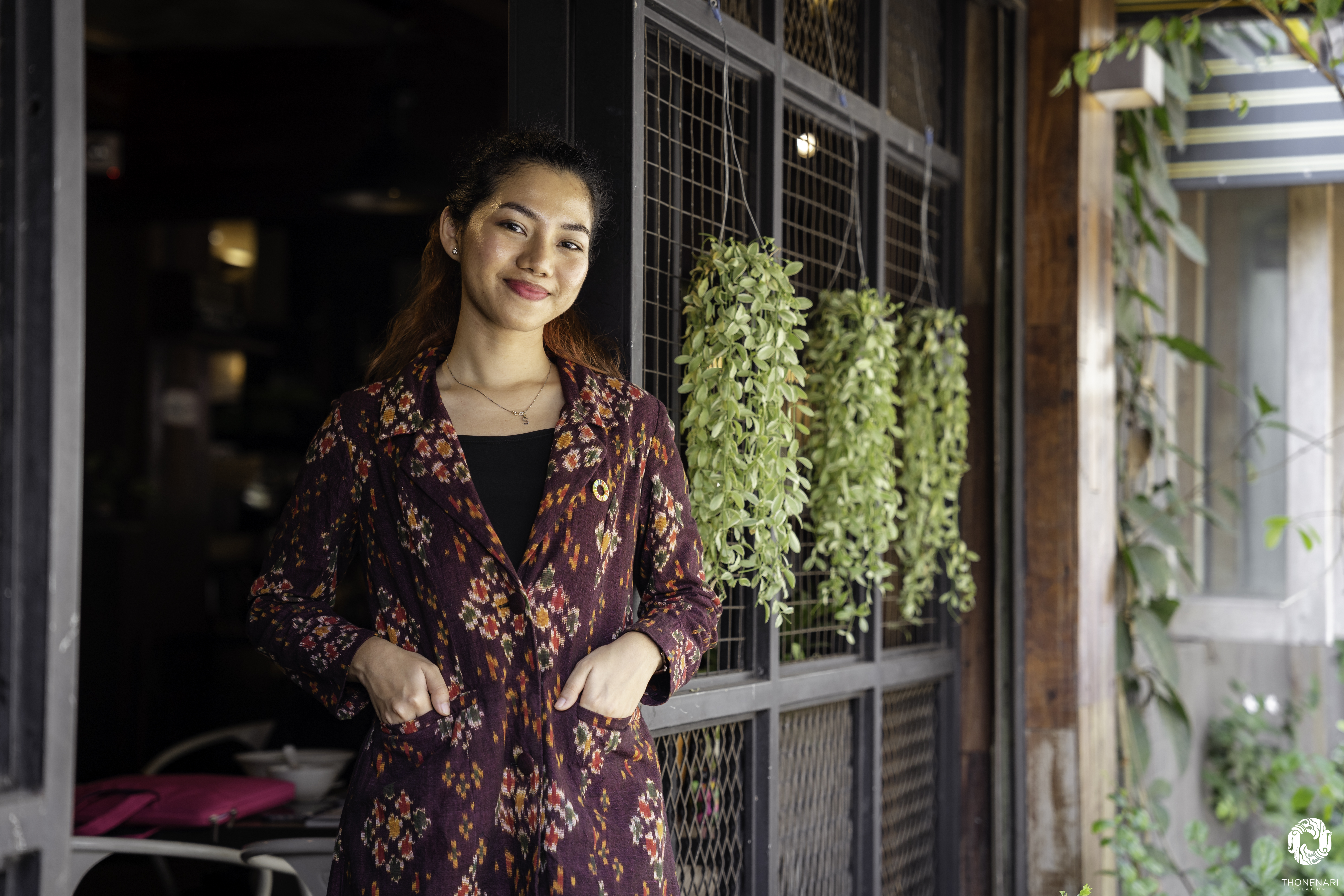
"Climate Change and Women: An interview with a woman who is educating the public on the consequences of climate change, featured in this week's Women to Women program."
Question: This week's women to women program features a woman who is educating the public about the repercussions of climate change. Could you introduce us?
Answer: Her name is Shar Thae Hoy , and I’m 25 years old. I’m currently engaged in activities related to climate change. She works with Climate Action Lab Myanmar-CALM, an organization focused on raising awareness among youth about climate change issues, promoting technological and knowledge-based solutions, and encouraging young people to collaboratively tackle these challenges. I began my involvement with climate-related issues around 2019. I was a regular participant in the environmental discussions held every Saturday at the American Center Yangon (ACY) environmental club. My interest in the environment, particularly biodiversity, grew from there. I realized the devastating impact of climate change on biodiversity, which fueled my deeper interest in climate change issues.
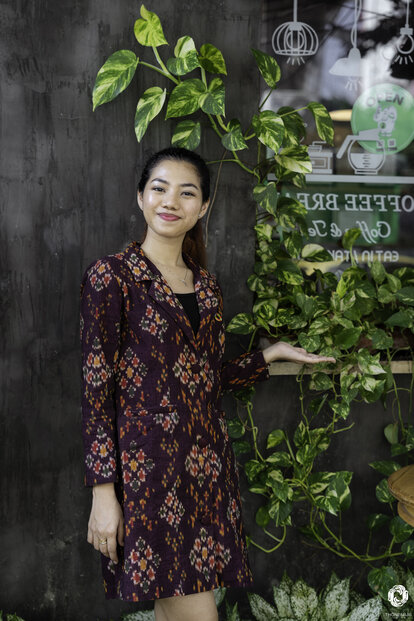
Question: How have things changed from when you first started working on climate change to now?
Answer: I have been interested in environmental issues since my 4th year of university. Initially, public awareness about climate change was not widespread; people were more familiar with environmental issues in general. my knowledge and involvement deepened through activities at the American Center. Back then, the youth's engagement with climate change was limited, and activities combining environment and climate change were fewer. Internationally, there were climate movements. Young people began to learn more about the environment and climate change, leading to climate strikes. However, the momentum waned with the onset of COVID-19. Recently, there have been more events, and capacity-building workshops related to climate change have become more common.
Question: How significant is climate change, and what are your current activities related to it?
Answer: The importance of climate change varies from person to person. I have been deeply involved in climate change activities for about four years and believes that everyone can contribute to addressing it. Climate change awareness tends to increase when people notice its impact on their daily lives, especially in areas where survival is a challenge. If faced with a choice between sustenance and environmental conservation, most would choose the former due to a lack of awareness. I believe that those interested in education should further engage in climate change efforts, focusing on mitigation and protection strategies. Realizing the impact firsthand, especially in affected regions, highlights the need for protective measures.I think more active participation is needed, especially in light of the extreme weather conditions experienced this year, including intense heat, floods, and cyclones. The most affected are the local populations of those areas. I advocate for collaborative efforts, including developed and developing countries, to address these issues comprehensively.
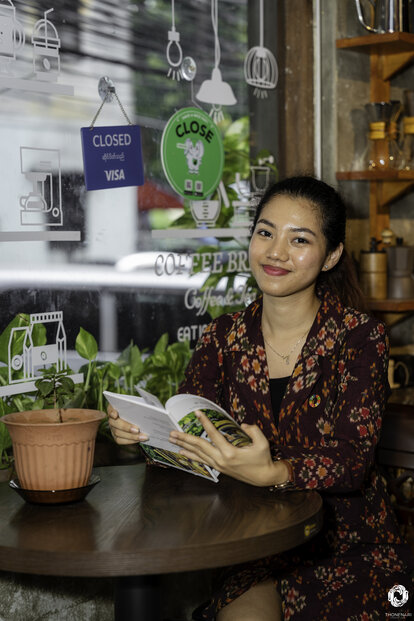
Question: If you could talk about the challenges you face in your work, what would they be?
Answer: Regarding climate change, older generations don't show much interest, which is a common issue internationally, including in Myanmar. There are also those who are aware but choose to ignore it. Another challenge is the environmental changes caused by human activities. In Myanmar, many people are still unaware of climate change. It becomes necessary to start from the basics to clearly explain it to those who are completely unaware. Internationally, there's a shift towards treating climate change and climate action as an emergency that cannot be ignored. We need to prioritize education. We have to start by making people aware of how climate change affects their daily lives. It involves educating people, especially the youth, who then can inform the wider community about their daily habits. Discussions about changes and experiences lead to practical strategies for dealing with issues like flooding. The main challenge is working with the public, who may not be well-informed, requiring time and effort to educate them about societal and lifestyle connections to climate change. Another issue is the lack of connection among people, especially during the time when social distancing due to COVID-19 made it harder to maintain relationships. I believe that better outcomes can be achieved when these connections are strengthened.
Question: What are your future plans related to climate change?
Answer: Currently, I work mostly individually. Young people want to speak about and take action on climate change, which led to the creation of Climate Action Lab Myanmar after participating in a Falling Walls competition. The organization plans to teach about the environment and related subjects through civic science education. For adults, we intend to relate cultural practices, such as conserving water and reusing old clothes, to climate-friendliness and share these practices as an archive. The goal is to make successful climate action through STEM (Science, Technology, Engineering, Mathematics) education. If we can succeed in this area, we want to not only educate but also enable them to innovate and lead solutions in their communities. After competing in Falling Walls and meeting supporters in Germany, I plan to further develop the green STEM curriculum.
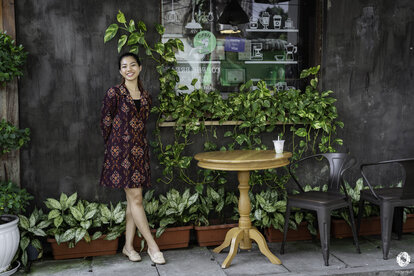
Question: As a woman engaged in climate action, what challenges do you face?
Answer: Historically, male dominance in fields like science, engineering, mathematics, and technology meant women had limited educational opportunities in these areas. Field trips and safety concerns also limited women's participation. There's a prevailing doubt about women's capabilities in these fields. However, with the presence of international female climate heroes, I hope Myanmar will also see the emergence of such figures. Often at panel discussions, there's a disproportionate number of male to female participants, which can be attributed to a lack of female experts or the existing rules and regulations. Starting from now, if we actively engage in these fields, we can expect to see more women leaders in the future.

Question: As a woman engaged in climate action, what challenges do you face?
Answer: Historically, male dominance in fields like science, engineering, mathematics, and technology meant women had limited educational opportunities in these areas. Field trips and safety concerns also limited women's participation. There's a prevailing doubt about women's capabilities in these fields. However, with the presence of international female climate heroes, I hope Myanmar will also see the emergence of such figures. Often at panel discussions, there's a disproportionate number of male to female participants, which can be attributed to a lack of female experts or the existing rules and regulations. Starting from now, if we actively engage in these fields, we can expect to see more women leaders in the future.
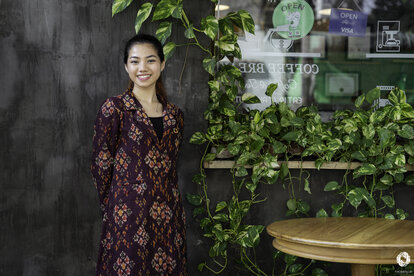
Question: Could you share some advice for women?
Answer: For women interested in climate change, my advice is to do what you love. Something I always ponder is, “When you do what you love, you can't just stop doing it.” When you enjoy your work, you can do it all the time, anytime. It becomes an unstoppable force. Engage deeply in what you are passionate about. Since I was young, I was interested in environmental issues. As I grew up surrounded by environmental influences, I wasn't sure what my passion was. However, I discovered my interest in environmental activities through joining clubs related to the environment. Once I made that decision, I no longer wanted to do anything else but pursued it relentlessly. Your dreams don’t have to change because of someone else. Life is full of unexpected turns. If more women participate in this field, it will lead to a better future.